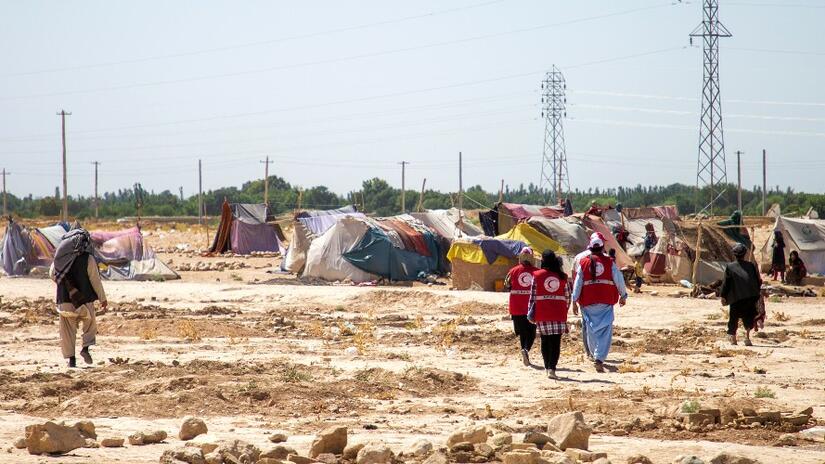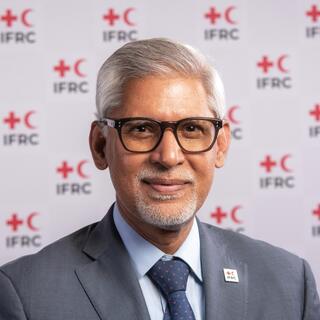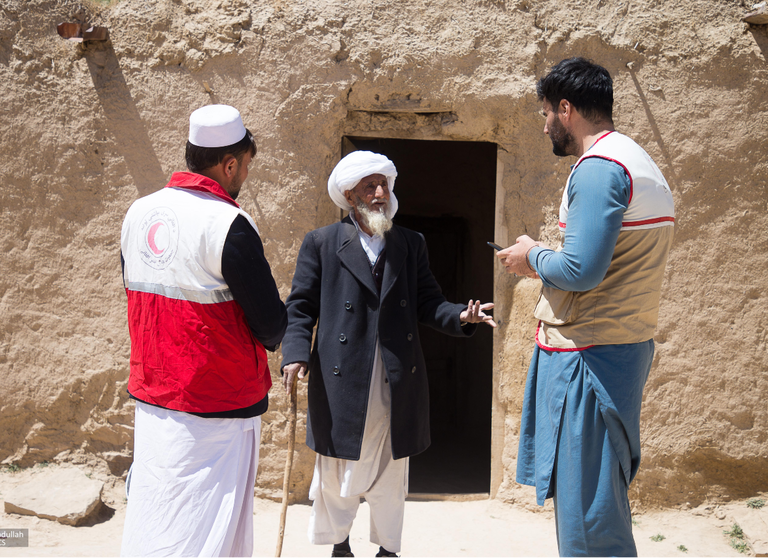Excellencies, Distinguished Representatives, Ladies and Gentlemen,
It is an honour to address you on behalf of the International Federation of Red Cross and Red Crescent Societies and our member National Society, the Afghan Red Crescent. I give this in complementarity to ICRC’s President, Peter Maurer’s earlier statement.
As current events in Afghanistan unfold, the Afghan Red Crescent continues to carry out critical humanitarian work through its network of 34 provincial branches, 2,000 staff and more than 30,000 trained volunteers.
The Afghan Red Crescent and the IFRC’s staff have been there through it all and are always there to fulfil our humanitarian mandate. We had no option to leave. We continue to deliver.
The IFRC has been in Afghanistan for more than 30 years uninterrupted. We have worked with the Afghan Red Crescent throughout this time in their institutional development, in bringing much needed humanitarian supplies, in bringing the community voices to the global stage and in providing leadership in coordination. We will remain by their side, for as long as we are needed.
Last week we launched a revised Emergency Appeal for 36 million Swiss Francs to ramp up support to the work of the Afghan Red Crescent in meeting the needs of those affected by one of the country’s worst ever droughts, acute food shortages, a fractured health system, displacement as well as the devastating impact of COVID-19. We have also provided support to the neighbouring countries’ National Red Crescent Societies, and we will need an additional 15 million Swiss francs to continue to do so.
Ladies and Gentlemen, I have three messages for you to consider, and act upon:
We must work together to ensure that humanitarian corridors are kept open. This may include making exceptions to sanctions, which allow for medical and urgent humanitarian supply chains. Now is the time to ensure that there are no bureaucratic obstacles to committing humanitarian aid. In return, we will ensure that support is provided to the most vulnerable, to enable locally managed and delivered aid, in line with our fundamental principles.
Now is the time to support local action, empower strong local organizations and make good on your localization commitments in the Grand Bargain. The Afghan Red Crescent has unique access to people in need - recognized for its neutrality, impartiality and independence. Its’ Afghan staff and volunteers work every day in every province of Afghanistan, with direct access to support communities with ongoing relief and health services.
Now is not the time to ignore Afghanistan; it is vital that we look to the future and support the people of Afghanistan as they work hard to heal and recover.
I thank you.
Statement on the High-level Ministerial Meeting on the Humanitarian Situation in Afghanistan

Afghan Red Crescent volunteers walk towards a small camp of internally displaced people in Balkh Province, Afghanistan in summer 2021. The Afghan Red Crescent has been delivering a cash transfer program to help people cope with multiple shocks including drought, COVID-19 and conflict.
Photo: Afghan Red Crescent/Meer Abdullah





